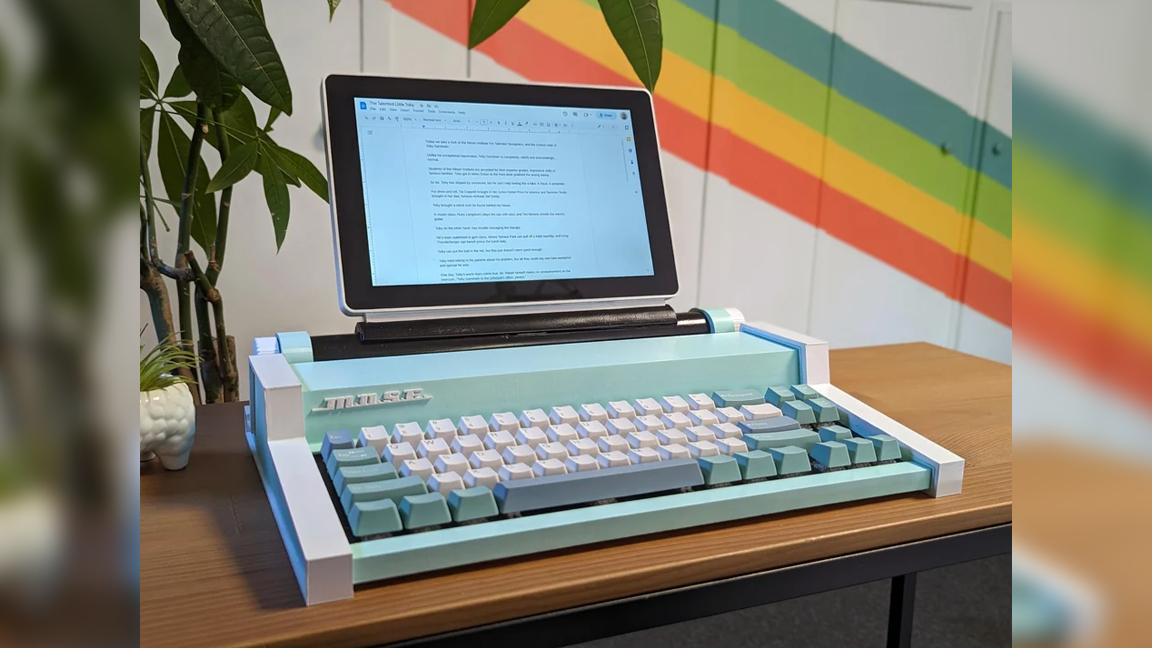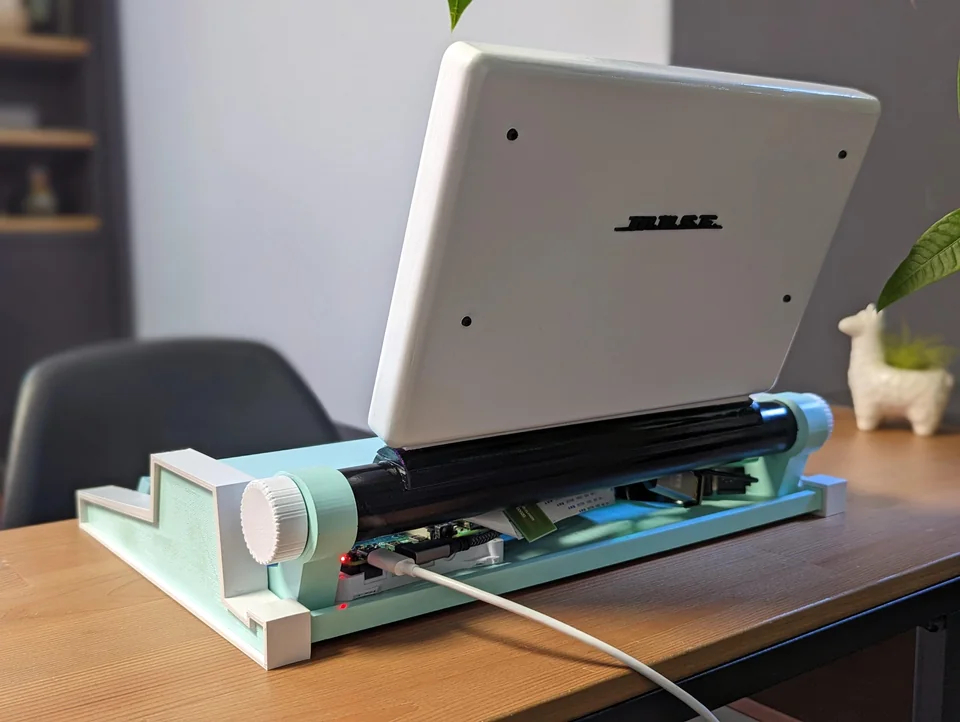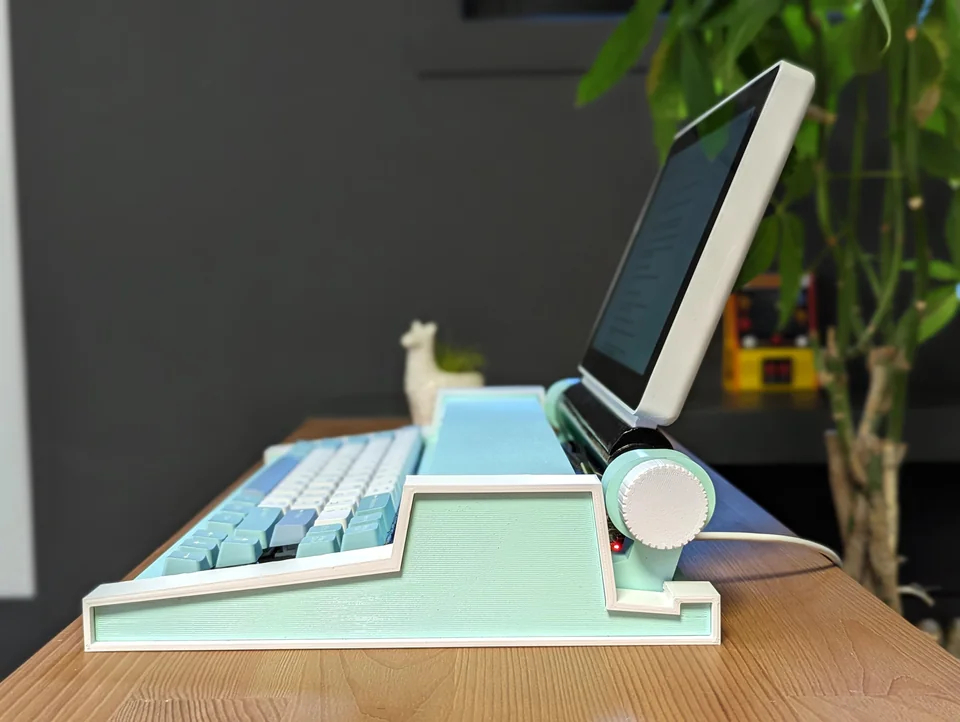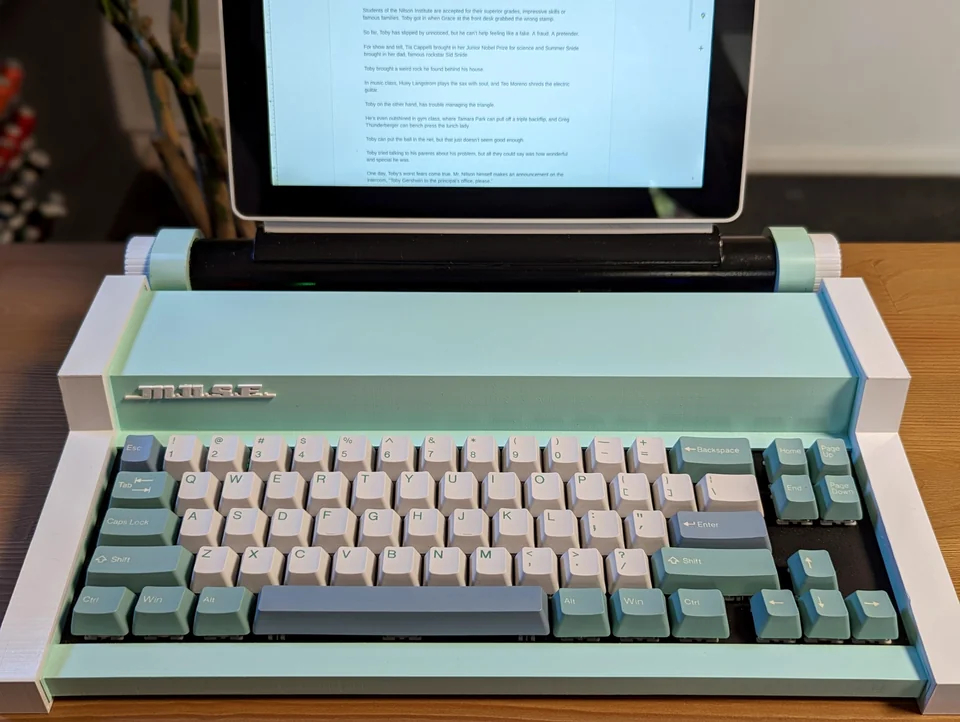Retro Inspired Raspberry Pi Writing Computer Aims to Reduce Procrastination

Writer's block is nothing to be trifled with and can cause serious procrastination for some writers. But if it wasn’t for the occasional struggle, we wouldn’t have awesome Raspberry Pi projects like this one from a maker known as ThisIsTheNewSleeve over at Reddit. Instead of writing like he’s supposed to be doing, he decided to make this gorgeous retro-style Raspberry Pi-powered writing computer.
ThisIsTheNewSleeve calls the project MUSE which is an acronym for Most Unusual Sentence Extractor. He goes on to explain that the style for the machine was inspired by retro typewriters from the 1960s and 1970s. Whether or not it extracts sentences in a way that alleviates his procrastination has yet to be determined. However, it definitely extracts some serious creativity!
The project involved custom PCBs to fit the components neatly into a 3D printed shell. The keyboard is supported by a black metal anodized keyplate. ThisIsTheNewSleeve is using a mechanical keyboard obtained from 68 Keys, a company specializing in custom open source keyboards. The PCBs were ordered from PCBWay.



For user input, it doesn’t have a mouse or touchpad but rather makes use of a 10.1-inch touchscreen from Sunfounder. The main board powering the system is a Raspberry Pi. You could easily recreate this system using any Pi as it doesn’t take much power for word processing. The hardware is housed inside of a custom 3D-printed shell designed using Tinkercad. Thankfully, ThisIsTheNewSleeve was kind enough to share the build files in the original project thread over at Reddit.
Because the primary goal of the system is to serve as a writing computer, you could run any operating system capable of word processing. In this case, Raspberry Pi OS would work just fine. If you’re using an online-based processor, like Google Docs, you could use anything with access to a browser.
If you want to recreate this Raspberry Pi project or just get a closer look at how it goes together, check out the original thread shared to Reddit by ThisIsTheNewSleeve. It showcases the writing computer and has plenty of details explaining the build process. This isn’t the first Pi-powered machine he’s put together. Be sure to follow ThisIsTheNewSleeve for more cool projects as well as any future updates on this one.
Get Tom's Hardware's best news and in-depth reviews, straight to your inbox.

Ash Hill is a contributing writer for Tom's Hardware with a wealth of experience in the hobby electronics, 3D printing and PCs. She manages the Pi projects of the month and much of our daily Raspberry Pi reporting while also finding the best coupons and deals on all tech.
-
King_V I would love to believe that the name of this project was inspired by the old 8-bit game M.U.L.E.Reply